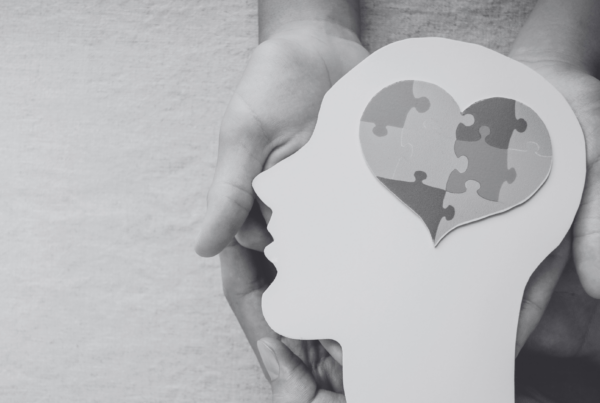Way back in May last year, we wrote a post on stress – the effects and what you can do to help reduce stress. We briefly explained the differences and correlations between stress and mental health issues too. This week we’re taking a more in-depth look at the difference, how you can help identify problems and where to go for help with stress or poor mental health.
Stress or Poor Mental Health?
Stress is very common, especial amongst people of working age. Some people can handle stress incredibly well and prefer to feel slightly ‘under pressure’, however, in the long, stress isn’t good for you. Even the people who swear they work better when stressed.
Stress is a natural reaction from your body and mind to external factors. Stress can be caused by a wide range of factors – work pressure, family issues, and very commonly – money problems. The point is, stress is usually a temporary condition that is caused by external factors.
Depression on the other hand, is much more serious and long lasting. Sometimes there can be no obvious reasons for depression – it isn’t uncommon for people who have never had problems with depression to become depressed, even with no contributing external factors.
The two are linked as long-term stress can lead to depression. Stress puts your mind and body in an unhappy position so it seems obvious that prolonged periods of stress will lead to poor mental health in general.
Side Effects
Stress or poor mental health isn’t good for your overall health. Short-term stress is generally unharmful and something nearly every single person will experience many times throughout their lives. However, the long-term effects of chronic stress are well documented.

As mentioned, stress can lead onto more serious mental health issues like anxiety and depression. It can also have a huge array of effects on your body. Just take a look at this chart by Healthline; stress affects nearly every part of your body. Potentially, stress can cause very serious problems with health and wellness and has even been linked to risk of stroke and heart disease.
Depression also has some nasty effects on your body; it can lead to harmful behaviours such as drug or alcohol abuse and in severe cases, self-harm or suicide.
In a nutshell; neither is good for your health and wellbeing and you should quickly try to identify of you have a problem with either.
Identifying a Problem
Do you think you may have a problem with either stress or depression? Sometimes it can be very difficult to identify your own feelings, other than feeling ‘off’. But the sooner you find out what is going on, the better. Both stress and depression are manageable and there are things you can do to help with them.
The key is establishing if you are stressed about something or if you have a problem that may be more serious.
It is useful to consider how long you have felt the way you have; is it intermittent feelings of anxiety that you can relate to specific events? Or have you had long term feelings of being down or not yourself?
A great way to hash out the way you feel is to speak to a friend and tell them how you feel. Sometimes, vocalising what you are feeling can help you understand. Thoughts can sound different when they come out of your mouth! If you feel like your problems may be related to work, try talking to a manager or a colleague that you have a good relationship with.
If you don’t feel like you can talk to anybody, perhaps write down your feelings? Just as though you were talking to a person, make a list of emotions that you are feeling and try to understand if there is any sort of pattern to them.
A big indicator that you may have a problem with stress or depression is listening to what other people are feeding back to you. Has anyone commented lately on the way you have been or something you have said? Perhaps colleagues have asked why you are being snappy, or a friend has asked why you don’t want to do any of the things that you usually do? Other people can be a big clue when it comes to working out if you have a problem.
If you want to speak to a person that you don’t know (this can sometimes be easier, especially over the phone too) then consider calling a helpline such as the Samaritans.
It is also important to remember that sometimes you may feel perfectly ‘fine’ in your mind, but you may have physical symptoms. Stress and depression can both have some similar symptoms, such as appetite changes, digestive and sleep problems. If you have any changes to what is usual for you it could be an indicator that something else is going on.
Where to get Help
First things first; go and see your doctor. Even if you aren’t sure if you are suffering from stress or it could be a mental health problem, your doctor will first do a physical check to see if there are any underlying illnesses.
Talking to your doctor is the route to many more ways you can get help. Your doctor may refer you on to a psychiatrist or diagnose a problem themselves. Once you receive a diagnosis and are ‘in the system’ you can try different treatments to help with both stress and depression.
Ultimately, the help you want to get and what you are willing to try is up to you. Some people find taking medication very helpful, some might opt for therapy – or a combination of both. It is important to remember that treatment for both stress and depression can take time to work and not all solutions are suitable for everyone. You may have to try a few different treatments to find what is effective for you.
If by the end of the process you have established that your problem is stress and it is work related, then it is important to speak to your employer.
What Can I Do About Work?
As mentioned, perhaps your problem is work-related or is because of something else. Either way, it is a good idea to talk to your employer about the problem.
It can feel really scary to have to tell your boss that you are stressed because of your job, but if you are well prepared and can give examples of what is causing you problems – perhaps deadlines that aren’t long enough or a workload which feels impossible to get through, then your employer can’t really dispute it. Most wouldn’t want to anyway! There isn’t any employer that deliberately wants to put their staff under unbearable amounts of stress. There are also various ways you can manage stress through your Wellspace app.

If your problem isn’t work-related, then it up to you if you want to discuss it with your employer or not. You may find it helpful though, especially when it comes to accounting for time off or having to leave work for appointments etc..
You might find yourself pleasantly surprised what help your employer will offer you. They may offer you reduced hours or duties for a short period. A supportive employer will do what they can to ensure that you are coping with your job and personal issues.
How Can Wellspace Help?
Your Wellspace app is designed to help you cope with workplace stress and anxieties. Get in touch with us if you aren’t sure best to use our solution
Wellspace also offer various types of wellbeing training that your employer can roll out. Speak to your employer if you think that you and others could benefit from workplace training.










